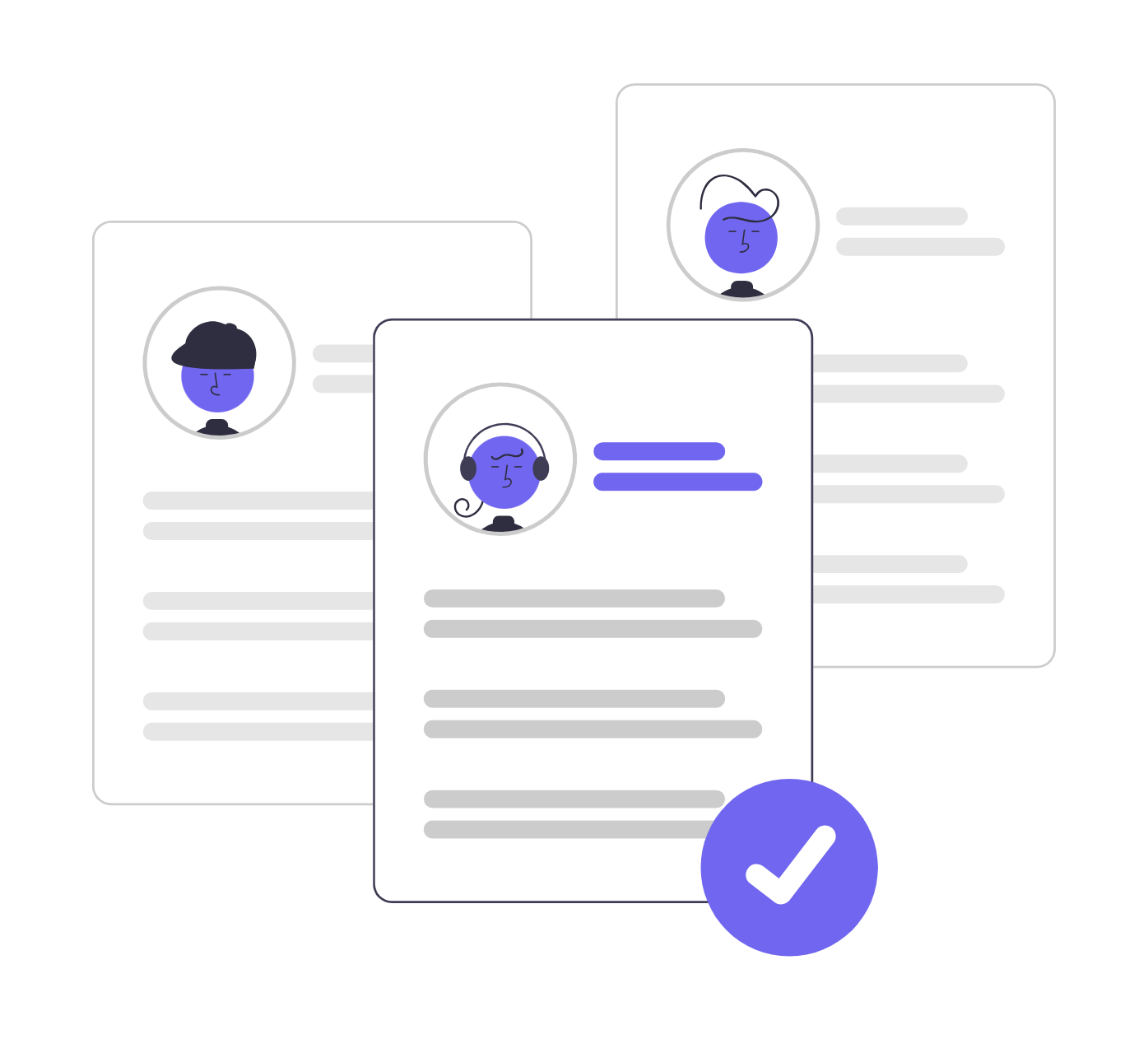Share
When you’re building a business, employment law is probably not the first thing on your mind. Growth, customers, and product? Yes. Legal disputes, government audits, or employee lawsuits? Hopefully not.
But here’s the reality: one misstep in handling an employee contract, wage compliance, or termination process can cost your business far more than a lawyer ever will. And in today’s evolving work environment—remote teams, new workplace norms, and increasing legal scrutiny—it’s no longer a question of if you need legal guidance, but when.
That’s where an employment lawyer comes in.
This guide will break down exactly what employment lawyers do, when to hire one, and how they help you build a stronger, more compliant, and better-protected business.
What Is an Employment Lawyer? (And What They Actually Do)
An employment lawyer is a legal professional who specializes in issues that arise in the workplace. They advise either employers or employees—rarely both—on how to navigate labor laws, contracts, and disputes.
For employers, their role typically includes:
- Drafting and reviewing employment contracts
- Advising on workplace compliance and regulations
- Representing the company in legal disputes
- Helping manage terminations, layoffs, or policy changes
- Investigating and responding to employee complaints (e.g., harassment or discrimination)
Put simply, they’re your frontline defense against making costly legal mistakes.
The Most Common Mistakes Small Businesses Make Without One
Many small business owners assume that employment laws are just “common sense” or that they can rely on templates and software. But here are just a few common—and expensive—missteps:
- Misclassifying contractors vs. employees (leading to IRS or DOL penalties)
- Omitting mandatory leave entitlements or breaks
- Failing to document disciplinary issues, making termination disputes harder to defend
- Drafting contracts with unenforceable clauses (e.g., overly broad non-competes)
- Responding too late or informally to harassment or discrimination complaints
Even the best intentions won’t protect you from noncompliance. And unfortunately, ignorance is not a defense in court.
Easily administer one-click skill tests with Workscreen-This way you can assess candidates based on real-world ability—not just credentials like résumés and past experience. This helps you hire more confidently and holistically.

7 Ways an Employment Lawyer Protects—and Strengthens—Your Business
Here are seven areas where an employment lawyer provides critical support, based on legal best practices for modern businesses:
1. Drafting Clear Job Descriptions
Your contracts must outline exactly what’s expected of employees—roles, responsibilities, and “other duties as assigned.” A vague or incomplete description can lead to confusion, performance issues, or disputes.
2. Ensuring Salary, Tax & Superannuation Compliance
An employment lawyer ensures your compensation plans meet legal standards—covering base pay, overtime, minimum wage laws, PAYG taxes, and superannuation (if applicable in your region).
3. Setting Fair and Legal Leave Policies
From sick leave to parental leave to paid time off, entitlements differ by employment type and jurisdiction. Your lawyer ensures that your policies align with local labor law and Fair Work standards.
4. Creating Enforceable Confidentiality Agreements
Your business’s intellectual property, trade secrets, and client data need protection. An employment lawyer helps draft airtight clauses that stand up in court.
5. Building Strong Termination & Breach Clauses
Poorly handled terminations can lead to wrongful dismissal claims. Clear exit terms, designed with legal oversight, prevent this.
6. Aligning Contracts with Company Policies
If you have (or plan to have) policies around remote work, equipment use, or workplace conduct, they should be legally reflected in your contracts.
7. Ensuring Compliance with Labor Law & Fair Work Obligations
Employment laws are not static. Your lawyer ensures you provide required documents like Fair Work Information Statements and remain compliant with evolving standards.
Beyond Contracts: Strategic Value Employment Lawyers Offer
An employment lawyer isn’t just a contract drafter—they’re a strategic advisor. They help you:
- Train your managers on hiring, termination, and compliance
- Investigate internal complaints (e.g., sexual harassment) fairly and lawfully
- Audit your documentation systems (e.g., performance records, time tracking)
- Work with your accountant to ensure payroll systems are legally sound
- Stay ready for audits or legal disputes—with the paperwork to back you up
Workscreen Eliminates low-effort applicants—including those who use AI Tools to apply, copy-paste answers, or rely on "one-click apply." This way, you focus only on genuine, committed, and high-quality candidates—helping you avoid costly hiring mistakes.

How Employment Law Is Evolving (And Why You Need to Keep Up)
Employment law isn’t just about old rules—it’s evolving rapidly. In 2025, new workplace realities are reshaping the legal landscape:
- Remote and hybrid work arrangements require new contract terms
- Mental health policies and DEI standards are now legal priorities
- Digital time tracking and wage transparency laws are being introduced worldwide
These trends demand regular contract updates and policy reviews. Employment lawyers help businesses stay proactive—not reactive—as regulations shift.
When Should You Hire an Employment Lawyer?
If any of the following apply to your business, you should consider hiring one:
- You’re hiring your first employee
- You’re scaling quickly and adding headcount
- You’re restructuring or planning layoffs
- An employee has raised a complaint
- You’re unsure about contractor vs employee classification
- You need to update outdated employment contracts or policies
The best time to hire an employment lawyer isn’t after something goes wrong—it’s before.
How to Choose the Right Employment Lawyer
Look for someone who:
- Specializes in employment law, not just general business law
- Has experience working with small or growing businesses
- Offers clear pricing—hourly, retainer, or legal service packages
- Can provide both proactive support (contracts, training) and reactive defense (disputes, representation)
Ask about their experience with recent labor law changes, and whether they stay involved beyond just contract reviews.
Conclusion: Don’t Wait for a Lawsuit to Find Legal Support
Employment lawyers aren’t just for courtrooms. They’re one of the smartest investments you can make in protecting your business, your people, and your peace of mind.
If you’re serious about hiring responsibly, staying compliant, and building a workplace where both your team and your business thrive—make legal guidance part of your growth strategy.
Because in modern businesses, the cost of not having an employment lawyer isn’t just financial. It’s operational, reputational, and long-term.
Quickly identify your most promising candidates. WorkScreen automatically evaluates, scores, and ranks applicants on a performance-based leaderboard—making it easy to spot top talent, save time, and make smarter, data-driven hiring decisions

FAQ
An employment lawyer specializes exclusively in labor and employment law, including contracts, workplace disputes, employee rights, and compliance with labor regulations. A general business lawyer may handle contracts and corporate matters, but they may not be equipped to handle complex employment-related legal issues.
Yes—even one employee triggers legal obligations under various labor laws (e.g., minimum wage, anti-discrimination). Employment lawyers ensure your contracts, leave policies, and payroll practices meet local and federal requirements from day one.
Absolutely. Employment lawyers can defend you in court, help negotiate settlements, or respond to formal complaints filed with labor boards or agencies. But ideally, they help you avoid getting to that point through preventative legal strategy.
Costs vary by region and complexity, but many employment lawyers offer:
- Hourly rates
- Flat-fee services (e.g., for contract review)
- Retainer packages for ongoing support
Hiring a lawyer may seem expensive, but it often saves far more in avoided penalties, lawsuits, and compliance issues.
Yes. Employment lawyers can determine whether a worker qualifies legally as a contractor (vs. employee), draft proper agreements, and help you avoid misclassification—which can lead to IRS or DOL fines.

